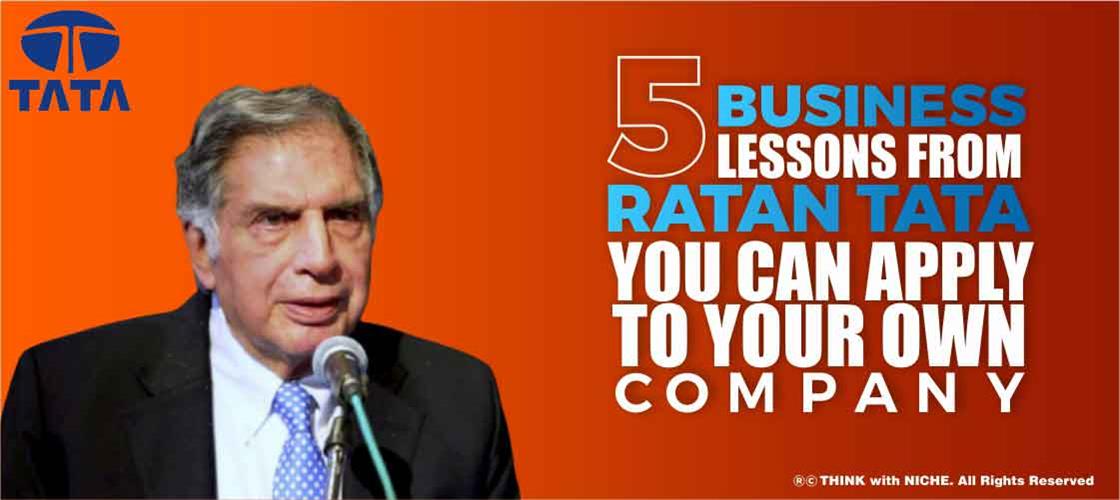
Post Highlights
Ratan Tata is credited with turning around what was a struggling company and expanding it into a global powerhouse. Tata's retirement letter reveals the keys to his success and we think they could really be helpful for you too. #ThinkWithNiche
Ratan Tata, the man who built one of India's most iconic companies, is now the chairman emeritus of Tata Sons. He was credited with turning around the company he took over from his predecessor and then expanding it into a global powerhouse. His retirement letter to employees reveals his secrets to success — and we think they're something we could all learn from. Whether you're running your start-up or managing a team in a larger organization, these five lessons will help you navigate the business world.
Know your Company's Purpose
Companies need to know their purpose. Ratan Tata writes that his company's purpose is to "be the best-managed company in the world." To achieve this, he had to live up to a few high standards:
1) Quality and safety
2) Social and environmental sustainability
3) Ethics and transparency
4) Innovation and digital readiness
These were the principles on which Tata Sons was built. They also create a framework for more specific goals — like prioritizing innovation — and serve as a measuring stick for success. This principle might seem obvious, but it's worth keeping in mind that running a successful business means living up to certain standards. Knowing what those standards are will help you grow your company into something great.
Stay Close to Your Customers
"It is always better to stay close to your customers. You follow their needs. They will follow you up the ladder."
An important lesson for any entrepreneur is that it's not enough to just have a brilliant idea. You need to be able to execute it. The only way you'll know what your customers want is if you are constantly in touch with them. Your goal should be to be closer than the competition, listening closely to what they need and understanding them intimately. This will make it easier for you to deliver on their expectations and exceed their expectations as well. The knowledge you gain from these interactions will help you create better products and drive success for your business as a whole.
Build a Strong Team for the Long-Term
Tata says that one of the most important things he learned is to build a strong team that could weather the storms. Be mindful of how your decisions affect your people, and you will create a company that will last.
Concentrate on Profit, not just Revenue
Tata noted that the company's revenue has grown from $5 billion to $100 billion during his tenure. But, as he said in his letter, "What matters, even more, is the profitability of those revenues." "In any business, what matters is whether or not you are making a profit on your turnover," Tata said. It might sound old-fashioned, but this is a lesson a business leader should never forget. Understandably, many of us focus on increasing our revenue — and we're all for that — but we also need to make sure we're making a profit. If you're not profitable and making money with your revenue, then what's the point? When you focus on profits first and foremost, you'll be able to better leverage your resources and time. You'll be able to make smarter decisions about where your money goes, where it doesn't go, and whether or not it's worth spending more time and energy on this particular project or customer base.
Be Consistent in your Decisions
A leader can't be swayed by what's popular but should instead be guided by the right decision. That said, it's not always easy to make a decision that will have a long-term impact on your company. When you're faced with a difficult decision, here's what Tata recommends: "First decide if there is a clear answer and then decide if the answer is correct." Tata feels that a leader should focus on making decisions that are in line with their values. "The world may change around you, but your values must not," he writes. "This is because these values give coherence to your actions."
For More Success Articles Click Here
Comments
Post a Comment